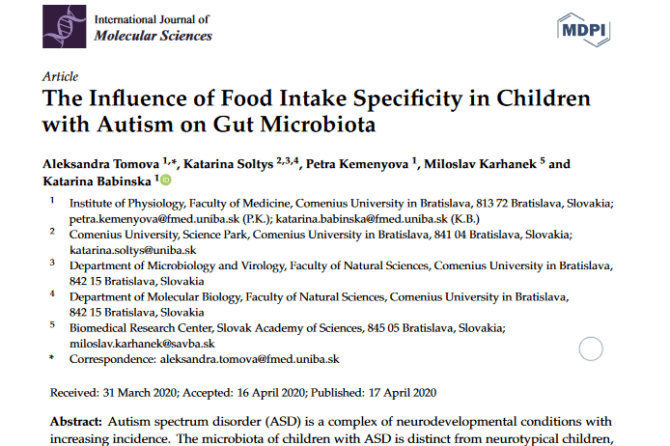
AUTHORS: Sashova Tomova, A., Šoltys, K., Keményová, P., Karhánek, M. and Babinská, K.
ABSTRACT: Autism spectrum disorder (ASD) is a complex of neurodevelopmental conditions with increasing incidence. The microbiota of children with ASD is distinct from neurotypical children, their food habits are also different, and it is known that nutrient intake influences microbiota in a specific way. Thus, this study investigates the food habits of children with ASD and their
association with the gut microbiota. Children with ASD had their dietary energy intakes similar to controls, but they more often demonstrated food selectivity, which seemed to result in deficiency of micronutrients such as vitamins K, B6, C, iron, cooper, docosahexaenoic and docosapentanoic acid. Using high-throughput sequencing, a DNA library of intestinal microbiota was performed. Core microbiota was similar in children with and without ASD, but Dichelobacter, Nitriliruptor and Constrictibacter were found to be putative markers of ASD. The changes in gut microbiota that we observed in connection to food selectivity, intake of fats and omega-3 in particular, fermented milk products and animal/plant protein consumption had similar character, independent of diagnosis. However, high fibre intake was connected with a decreased α-diversity only in children with ASD. High carbohydrate and fibre intake influenced β-diversity, changing the abundance of Bacteroides and other genera, many of them members of the Clostidiaceae. Modulating food habits of ASD children can influence their gut microbiota composition.
Int J Mol Sci 2020 Apr 17;21(8):2797.


